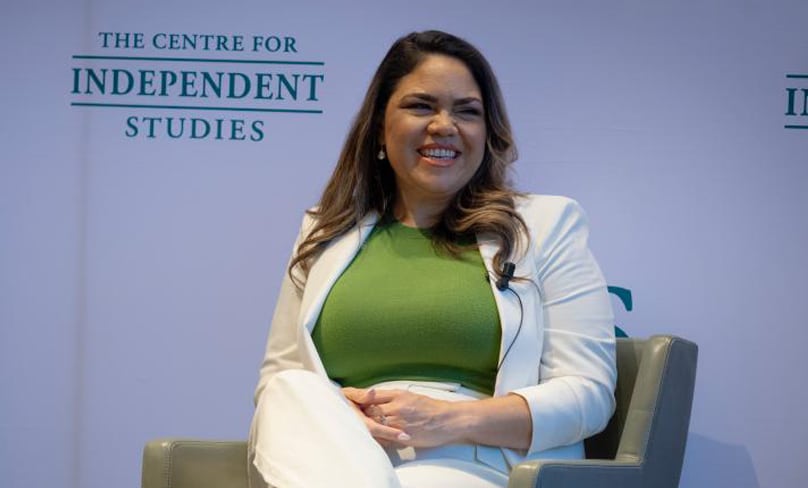
The Voice to Parliament referendum is not only the most divisive in the country’s history but based on a false conception that its Indigenous peoples on the whole are its most marginalised, said Shadow Minister for Indigenous Australians, Senator Jacinta Nampijinpa Price in a recent interview with Murray Norman of Better Balanced Futures, a group representing a number of faith communities.
There is also little information on how the Voice will work and how it will improve the lives of marginalised Indigenous communities, she said.
“We don’t have a solid proposal that we can, hand on heart, say that we feel informed enough to say Yes to, I believe,” Ms Price said.
“If we listen to the proponents of the Voice, and certainly what’s been written [in the Uluru Statement], in a lot of what exists in it, there’s very little in way of suggesting in practical terms how it’s going to improve the lives of our marginalised.
“There are, however, certainly plans or demands for reparations, paying the rent, creating even a separate sort of power, if you like, a separate kind of black parliament or chamber.
“To me, separatism doesn’t work, but attempting to meet the demands of activists continually isn’t about supporting our most marginalised, and it hasn’t got us anywhere so far, in practical terms.”
Ms Price said research conducted when she led an Indigenous research program for the Centre for Independent Studies showed that the most marginalised Australians are those whose first language is not English and who live in regional and rural areas.
Australians should be served on the basis of need as opposed to race, she said.
“The gap doesn’t exist between Indigenous and non-Indigenous Australia, the gap exists between those who have and those who have not,” she said.
“The further you move away from a capital city, the more marginalised Australians become everybody.
“Within the Indigenous community, which is three percent of Australians, only 20 per cent of those are, in fact marginalised.
“So the Voice [proposal] is suggesting that we are inherently disadvantaged, for no other reason but our race, but there is really an Indigenous middle class that are doing work very, very well for ourselves.”
She also said she was “deeply” concerned at being told that the Voice representatives would be chosen by community members.
“That concerns me deeply because I’m also an advocate against domestic and family violence and in a lot of small communities they’re controlled, quite often, by the most aggressive individuals,” she said.
“So if it’s suggested that we just leave it up to the decisions of communities in that way, that’s just opening a can of worms for the most aggressive to eventually take control and end up being the representative.”
Choosing representatives will also be challenging when there is “already infighting within the structures that exist” in Indigenous communities.
For our most marginalised, it’s about focusing our efforts on them to ensure that they know how to take those opportunities for their lives and understand that they do have choice as we
Mr Norman asked Senator Price how faith communities can contribute towards drawing the nation together.
“The faith community has had a lot of influence throughout communities within the Northern Territories. The missionaries provided—during the violence of the frontier—safe haven for a lot of Indigenous groups,” Senator Price, whose mother was brought up a Baptist, replied.
“It’s not acknowledged enough the good work that was done back in the day, to not just provide safe haven against the violence of the frontier, but provide the opportunity for Indigenous Australians to become skilled and a part of the Australian economy, as well, learning those skills for employment.”
